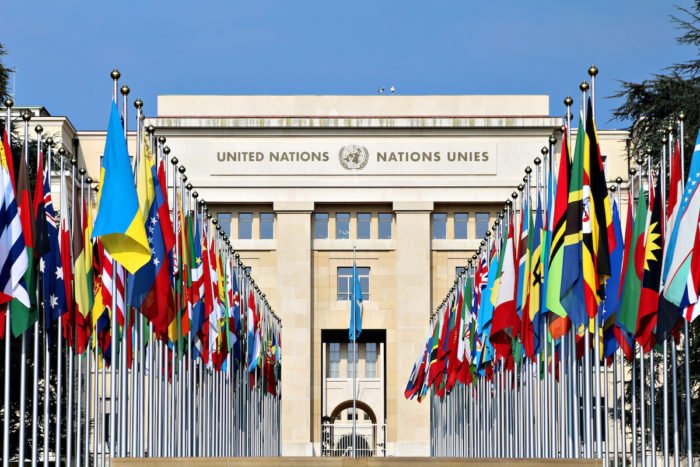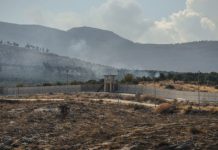The Council of Europe’s Committee for the Prevention of Torture and Inhuman or Degrading Treatment or Punishment (CPT) confirmed in two reports published on August 5 the continued existence of ill-treatment, torture, informal questioning and restricted access to a lawyer as well as a fundamentally flawed medical screening system in Turkish detention facilities.
The CPT, a body combatting torture and other ill-treatment through periodic or unannounced visits to places of detention of member states, made its reports along with the responses of the Turkish authorities public with the permission of the Turkish government.
Ill-treatment and torture are resorted to with a view to extracting a confession or obtaining information or as a punishment, the CPT found.
In addition, the problem of prison overcrowding remains acute, according to the commission.
The reports are based on the CPT’s 2017 periodic visit and 2019 ad hoc visit to Turkey.
“The delegation received a considerable number of allegations from detained persons (including women and juveniles) of recent physical ill-treatment by police and gendarmerie officers, in particular in the Istanbul area and in south-eastern Turkey,” the 2017 report said.
According to the report the alleged ill-treatment, in some cases, was of such severity that it could be considered as amounting to torture.
During its visits the CPT delegation examined the treatment and conditions of detention of persons detained by the police/gendarmerie. To this end, the CPT interviewed hundreds of persons who were or had recently been held in police custody, including on suspicion of terrorism-related offenses, in the Ankara, Diyarbakır and Istanbul areas.
The delegation furthermore visited various severely overcrowded prisons in Istanbul and southeastern Turkey.
Most of the recent physical ill-treatment allegations concerned excessive use of force at the time of detention. “In addition, many detained persons claimed that they had been physically ill-treated inside law enforcement establishments, with a view to extracting a confession or obtaining information or as a punishment,” the report found.
Citing the testimony of some detainees, the report further stated that electric shock had been inflicted upon them by police officers with body-contact shock devices.
“In a number of cases, the alleged ill-treatment was of such severity that it could be considered as amounting to torture,” the report found.
The CPT further received many accounts, in particular from detained women, testifying that they had been subjected to psychological ill-treatment (such as threats of beatings, rape or death) and/or severe verbal abuse (often of an explicit sexual nature).
Concerning its findings on torture and ill-treatment, the CPT recommended that the president of the republic send a clear and firm message that all forms of ill-treatment of detained persons are illegal and will be punished accordingly.
The CPT also expressed concern “about the existence of legal restrictions regarding access to a lawyer during the initial phase of police custody.”
The delegation received many complaints from detainees to the effect that they had been subjected to informal questioning by law enforcement officials about the suspected offense without the presence of a lawyer, prior to the taking of a formal statement (in the presence of a lawyer).
The CPT further found the entire system of routine medical screening at the beginning and at the end of police custody to be fundamentally flawed, “since law enforcement officials were usually present during such controls and these controls were often carried out without any physical examination.”
The report criticized the material conditions of detention centers, which suffered from major structural deficiencies and were thus not suitable for periods of detention lasting longer than 24 hours.
The delegation found the cells of the detention facilities visited, with a few exceptions, to give limited or no access to natural light, equipped hardly with any facilities to enable detained persons to take outdoor exercise.
“The situation was further exacerbated by the fact that detained persons were being held in severely overcrowded cells,” the report stated.
The CPT repeated similar observations in its 2019 report. “As was the case during the CPT’s 2017 visit, the delegation received a considerable number of allegations of excessive use of force and/or physical ill-treatment by police/gendarmerie officers from persons who had recently been taken into custody (including women and juveniles).”
According to the report, “These allegations mainly consisted of slaps, kicks, punches (including to the head and/or face) and truncheon blows after the persons concerned had been handcuffed or otherwise brought under control.”
“A significant proportion of the allegations related to beatings during transport or inside law enforcement establishments, apparently with the aim of securing confessions or obtaining other information, or as a punishment,” the report found.
The report further stated that in a number of cases, the allegations of physical ill-treatment were supported by medical evidence, such as bodily injuries documented in medical records or directly observed by medical members of the delegation.
Summarizing its overall findings, the CPT said that it had “gained the impression that, compared to the findings of the 2017 visit, the severity of alleged police ill-treatment has diminished.” However, it found the frequency of allegations to be at a worrying level.
The committee once again stressed in its 2019 report the need for more decisive action by all relevant authorities in order to combat the phenomenon of police ill-treatment in Turkey and reiterated its recommendation that a clear and firm message of “zero tolerance” of ill-treatment be delivered to all law enforcement officials from the president of the republic.
According to the committee, the expansion of the prison estate and greater use of conditional release and alternative non-custodial measures notwithstanding, the problem of prison overcrowding remained acute, and the steady increase in the size of the prison population already observed in the mid-2000s continued.
Concerning the continued overcrowding the committee recalled that constructing new prisons is not likely, in itself, to provide a lasting solution to this problem and recommended that imprisonment – including pre-trial detention — be used as a measure of last resort.
After a coup attempt on July 15, 2016, ill-treatment and torture became widespread and systematic in Turkish detention centers as was evidenced by the UN special rapporteur on torture and other cruel, inhuman, or degrading treatment or punishment in a report based on his mission to Turkey between November 27 and December 2, 2016.
“[I]n the immediate aftermath of the failed coup, torture and other forms of ill-treatment were widespread, particularly at the time of arrest and during the subsequent detention in police or gendarmerie lock-ups as well as in improvised unofficial detention locations such as sports centers, stables and the corridors of courthouses,” the special rapporteur found.
Unlike the 2017 and 2019 reports, the Turkish government prohibited the publication of CPT’s 2016 Turkey report based on its inspections between August 28 and September 6, 2016 in Turkish detention centers after the failed coup.
















[…] The Council of Europe’s Committee for the Prevention of Torture and Inhuman or Degrading Treatment or Punishment (CPT) confirmed in two reports published on August 5 the continued existence of ill-treatment, torture, informal questioning, and restricted access to a lawyer as well as a fundamentally flawed medical screening system in Turkish detention facilities. More.. […]
[…] of Torture and Inhuman or Degrading Treatment or Punishment (CPT) confirmed in two reports published in August 2020 the continued existence of ill-treatment, torture, informal questioning and […]